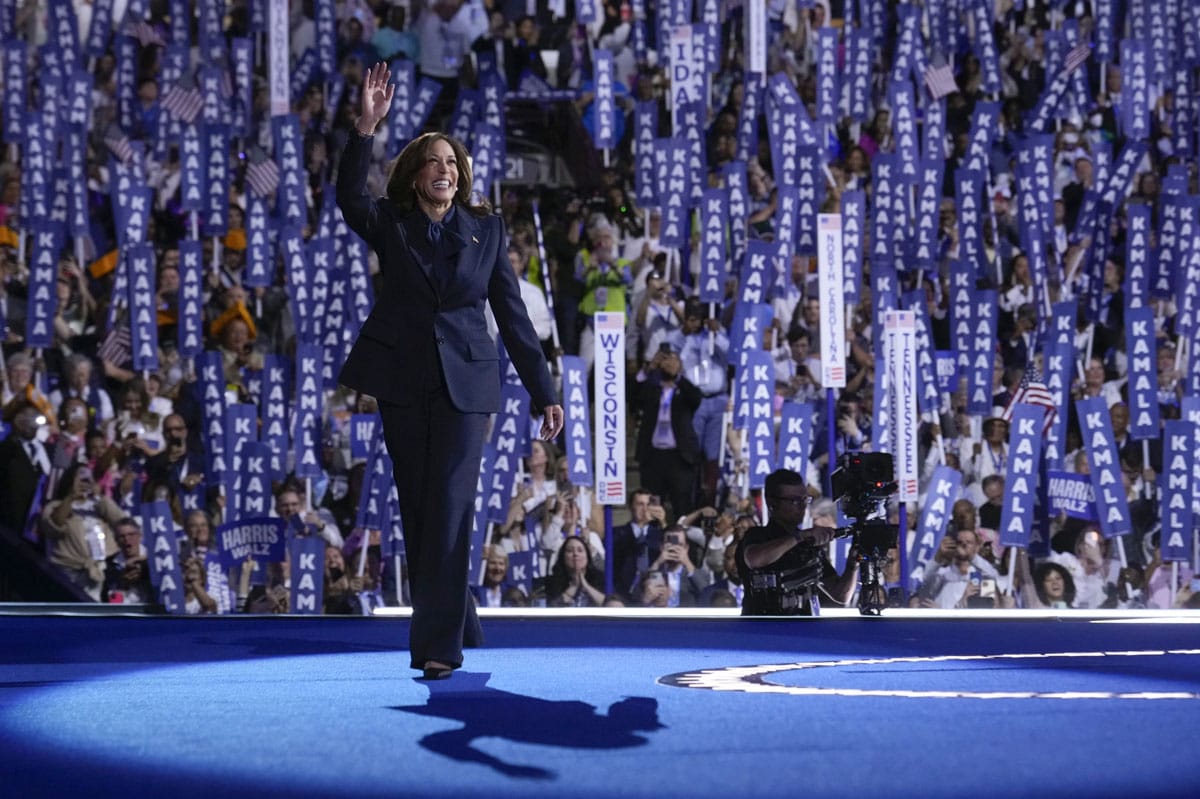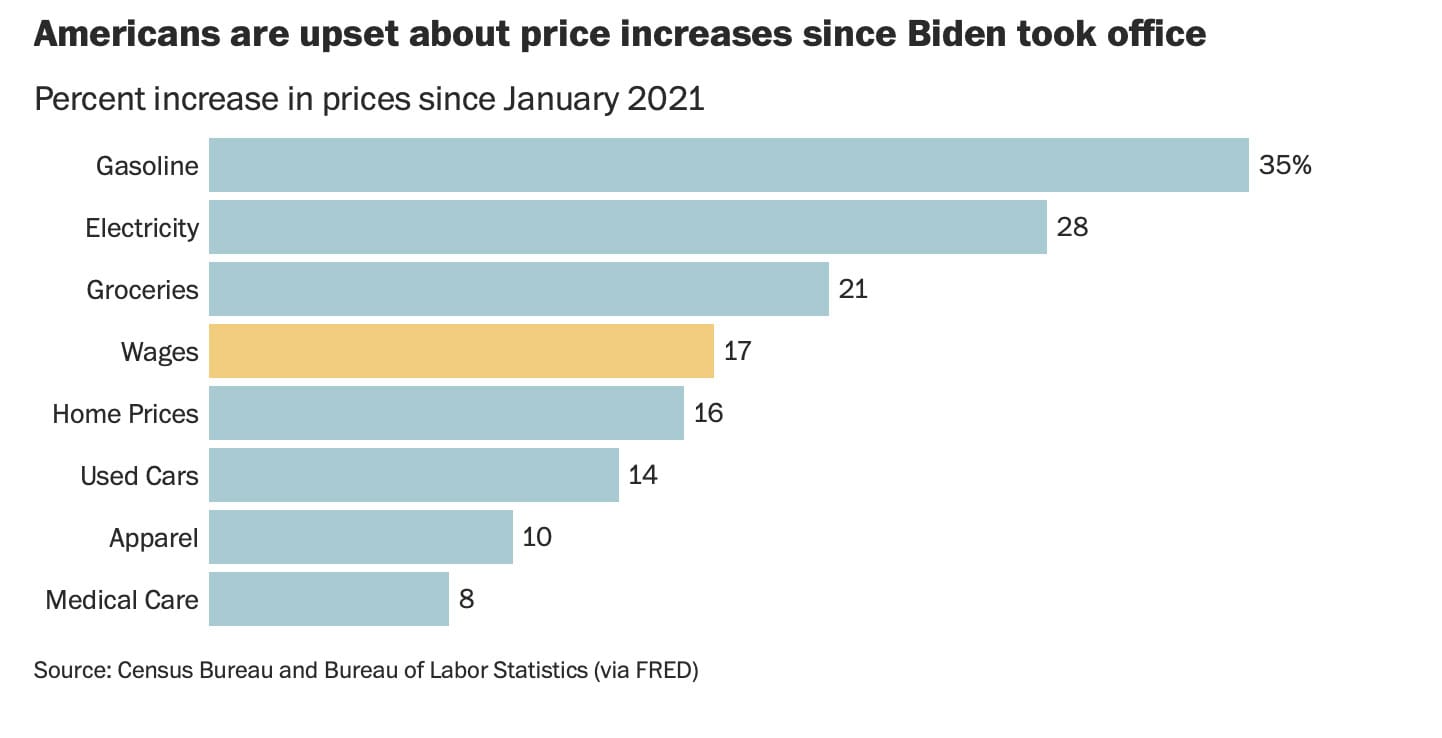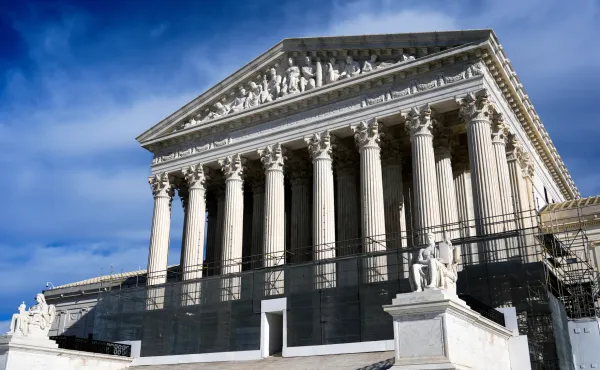The DNC Wraps Up: “A New Path Forward”

The DNC kicked off in Chicago on Monday. Over the four nights ensuing, the stars of the Democrat Party took to the stage to throw their support behind the Harris/Walz ticket. Speakers included Oprah Winfrey, Hillary Clinton, President Joe Biden and former Presidents Barak Obama and Bill Clinton.
The DNC did not give speaking slots to pro-Palestinian presenters, and an estimated 3,500 pro-Palestinian protesters showed up on the opening day. A group of them removed locks and knocked down part of the outer fence and threw objects and sprayed pepper spray at police, causing minor injuries to officers. Over the first three nights of the DNC, nearly 140 pro-Palestinian protesters were arrested.
In Oprah’s surprise speech Wednesday night, she said, “If you do not have autonomy over [your own body], if you cannot control when and how you choose to bring your children into this world and how they are raised and supported, there is no American dream.” Abortion rights may be the Democrats’ strongest message, and as Oprah said, crucial to their vision of the American Dream. A Planned Parenthood van on site provided free abortions and vasectomies.
An overarching anthem of the DNC was the politics of “joy,” because “we’re not going back” since we’ve found “a new path forward.” In her acceptance speech Thursday night, Vice-President Harris delivered a pithy, strong message aimed at middle-class voters, punctuated with attacks on her opponent, former President Trump. She promised to provide federal abortion protection and named some of her economic policies, but spent less time on policy and more time on her story and her time as a courtroom prosecutor. Vice-President Harris makes history as the first woman of color (Jamaican/Indian) to lead a major-party ticket. She emerges from the DNC strong, and a formidable challenge to former President Donald Trump. If elected, she would be the first woman to hold the office of President of the United States.
President Biden spoke the first night of DNC as the opening act for what just one month ago would have been his convention. With a reportedly delayed schedule, his speech did not begin until nearly 11:30 P.M. EST. He quoted from Norah Jone’s American Anthem: “Let me know in my heart when my days are through. America, I gave my best to you...” He then added, “I made a lot of mistakes in my career. But I gave my best to you.”
RFK Jr. Suspends Campaign, Endorses Trump
Today Robert F. Kennedy Jr. suspended his presidential campaign and endorsed former President Donald Trump. RFK Jr., the nephew of President John F. Kennedy, and a lifelong Democrat, began his campaign as a Democrat. In the absence of a substantive Democrat primary, he switched to an Independent run. In a press conference today in Arizona, RFK Jr. blasted Democrats and the media for what he described as the top-down, undemocratic nature of the Democrat Party’s selection of Kamala Harris and their legal efforts to keep him off the ballot, off the debate stage and out of the media. He lamented that the Democrat Party “has become the party of war, censorship, corruption, big pharma, big tech, big ag and big money.” Outside of his goals of ending the war in Ukraine and supporting free speech, RFK Jr.’s biggest goal is improving the health of American children. He will likely join President Trump tonight at a rally in Arizona.
Bureau of Labor Statistics Reports 818,000 New Jobs Error
On Wednesday, the Bureau of Labor Statistics reported that the U.S. economy had created 818,000 fewer jobs than previously reported. The timeframe for reporting goes from April 2023 through March 2024. 2.9 million new jobs originally had been reported, while the actual number is 2.09 million, a 28% reduction and the largest adjustment since 2009. Additionally, all of the 818,000 new jobs that do not exist are in the private sector. The number of government jobs actually increased above the original amount reported.
Gaza Ceasefire Talks Postponed but Resuming Sunday
Despite being postponed from this past Wednesday to this coming Sunday, delegates from the U.S., the Prime Minister of Qatar and senior officials from Israel and Egypt will meet in Cairo to continue Gaza ceasefire talks.
Opinion: Two Radically Different Fiscal Policy Proposals
By Andrew Taylor

Represented in the two presidential candidates are two radically different ways of dealing with the economic situation. Put in simple terms, Trump’s plan is to cut underlying costs such as tax and energy; Harris’s plan involves capping consumer prices by fiat and more government spending and subsidy.
Vice-President Harris’s stated philosophy is closer to “equal outcome” than “equal opportunity.” Harris states: “Equality suggests…everybody should get the same thing. Well, that often assumes everybody started out in the same place, as opposed to equity which is everyone should end up in the same place and if you then understand not everybody started out in the same place, you understand some people need more so we all end up in the same place.” This philosophy is borne out in her fiscal policy, where taxes are raised on corporations and the rich, and are given to the poor in the form of home down-payment subsidies, medical debt forgiveness, etc.
This shows the contrast between a “more government” and a “less government” approach. Republicans’ plan involves further lowering the corporate tax rate and cutting regulation on oil drilling and fracking. They say limiting the role of the government in these ways will increase opportunity for everyone.
Critics of Vice-President Harris’s plan say that raising corporate tax rates will only push more corporations out of the U.S. and into more tax-friendly countries, while the rich continue to exploit tax loopholes, such as the “carried interest” loophole for private equity managers. Vice-President Harris has garnered an astounding number of negative headlines from the Washington Post to CNN warning that soft communism may result if the government is given the power to mandate consumer prices and to tax unrealized gains. (For instance, until now you would only be charged a capital gains tax if you sell your home for more than you paid for it, but a tax on “unrealized gains” means that if your home value goes up, a tax would levied regardless of whether you sell your house or keep it.)
When Harris urges the construction of 3 million new affordable homes and offers tax incentives to home builders, she’s putting the incentives on the side of the equation many economists agree it should be on: the supply side. But then when she offers $25,000 down-payment assistance, she’s putting the incentives on the demand side, which economists argue will inflate prices.
She also agrees with President Trump’s plan to not tax tips (many say she outright plagiarized that idea), and her proposal includes the expansion of the child tax credit, which echoes Republicans’ plan.
Nobel-winning economist Milton Friedman, lauded by the New York Times as “arguably the most influential economist of the 20th century,” believed that the control over the money supply—that is, over the printing of money by government and its lending by banks—is the key to the cause and to the cure for inflation. “Inflation is made in Washington because only Washington can create money,” Friedman famously said in a 1978 lecture. “It’s always and everywhere a result of too much money, of a more rapid increase in the quantity of money than in output [GDP]. Inflation in the United States is made in Washington and nowhere else.”
As former President Trump and Vice-President Kamala Harris enter into the final 75 days of the election and each try to sell their vision to the American people, the differences in the two candidates are many. Their fiscal policies may reveal one of the biggest distinctions of all.





